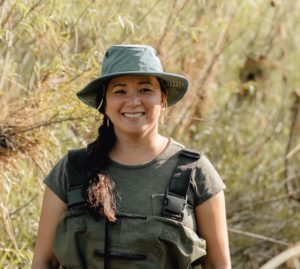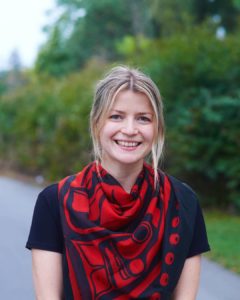Monday, May 16: Collaborations Across Disciplines
Margaret A. Palmer
National Socio-Environmental Synthesis Center
University of Maryland
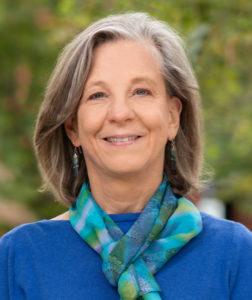
All Environmental Problems are Social Problems
Most of us do the research we do not only because we enjoy it or because its challenging and creative. We do it because we care about the environment. We want to solve environmental problems. But what happens when we as water scientists accept the premise that all environmental problems are social problems? Must we step away from our hydrology research? Or our biogeochemistry or ecological work? Or even our work that links two or more of these domains? My answer to that is no. What we are doing it is necessary but however I also say that it is not sufficient. So called convergence research – variously called translational, actionable, or societally-relevant – is essential. And this can be of a fundamental research nature i.e., it is not limited to place-based or point-in-time solution-driven research. In this talk, I reflect on my own research experiences and those as Director of SESYNC – the National Socio-Environmental Synthesis Center – to explain and support these assertions. I describe why a certain level of knowledge from the social sciences is required to move all of our research agendas forward. Why certain collaborations fail and others succeed. And why certain approaches to problem formulation lead to novel collaborations and high impact research.
Margaret A. Palmer is the Director of the National Socio-Environmental Synthesis Center, an NSF-center dedicated to creating actionable science related for the sustainability of socio-environmental systems. As a Distinguished University Professor at the University of Maryland, she oversees research focused on watershed science and restoration ecology. Palmer is also known for her work at the interface of water science and policy, having served as a technical advisor and innovator to help build solution-focused teams that solve problems with social, legal, policy and scientific aspects. Extensively published, she has served on many editorial boards including Limnology & Oceanography, Science, Environmental Research Letters, and Restoration Ecology and has been honored as a AAAS Fellow, ESA Fellow, Aldo Leopold Leadership Fellow, Lilly Fellow, Ruth Patrick Awardee (ASLO), Sustainability Science Awardee (ESA), Research Excellence Awardee (SFS). Beyond her vigorous research program, Palmer remains actively engaged in science matters associated with national and local water policies and actions, particularly associated with the Appalachians.
Robert R. Twilley
Louisiana State University Coastal Sustainability Studio
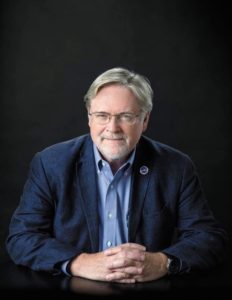
Collaborative Ecosystem Design as Framework for the LSU Coastal Design Studio
Hurricanes Katrina and Rita in 2005 had a profound effect on coastal restoration planning in the Mississippi River Delta by focusing more on integrating regional planning with ecosystem services to reduce risks to coastal communities. These aspirations require systems thinking, design methodologies across disciplines, performance analytics, and community collaboration. We developed the Collaborative Ecosystem Design (CED) framework to bring scientists, engineers, designers, and planners into a studio environment to achieve intentional change of landscape, infrastructure, and urban patterns to sustainably provide ecosystem services and address societal needs and values. Regional landscapes such as major river basins and coastal deltas integrate human-environment interactions and are often a place of conflict among stakeholders with different expectations of the landscape. There are many examples of collaborative approaches that capture collaborative forms of resource management. However, ecosystem design acknowledges that many projects are engaged in the creation of “novel or managed” ecosystems of which people are a part. The design process aimed at changing existing situations into preferred ones provides a common ground for researchers and practitioners to implement ecological and engineering principles into decision making processes to positively affect landscape change. Through interdisciplinary research, design methods, collaborative outreach, student mentorship, and high-performance computing, the LSU Coastal Design Studio aims to expand the horizon of what is possible for people living at the interface of environment, settlement, infrastructure, and economy in the Mississippi river delta and coastal regions around the world.
Robert R. Twilley, Ph.D. has been a Professor in Department of Oceanography and Coastal Sciences, College of Coast and Environment since 2004. He has served in several administrative capacities at LSU including Executive Director of Louisiana Sea Grant College Program, Associate Vice Chancellor of Research and Economic Development and Director of the Wetland Biogeochemistry Institute. Dr. Twilley founded the LSU Coastal Sustainability Studio and was recently awarded the 2022 LSU Rainmaker Award for research excellence. He served as President of Coastal and Estuarine Research Federation and was recipient of the National Wetlands Award in Science Research by the Environmental Law Institute. His research spans ecosystem restoration efforts in Mississippi River Delta and neotropical coasts related to his expertise in systems and mangrove ecology. He received his BS and MS from East Carolina University, PhD from University of Florida, and post-doctoral studies at Horn Point Laboratory at University of Maryland Center for Environmental Studies.
Tuesday, May 17
Kiki Jenkins
Arizona State University
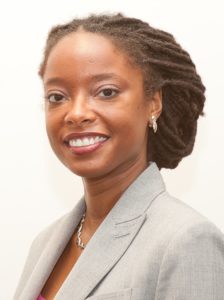
Power, Politics, and Culture in Aquatic Sciences and Technology
How can we each answer the call to be a jedi by furthering belonging, accessibility, justice, equity, diversity, and inclusion (BAJEDI) in aquatic sciences? The current injustices and inequities within aquatic sciences is not just a product of the larger society in which we exist but is also a result of intentional design decisions and choices made by the broad aquatic community. I explore the BAJEDI implications of aquatic sciences through the lens of theories from science and technology studies around power, politics, and culture. I use marine technology as an allegory for aquatic sciences, in general. Technology and technological systems can have power, politics, and culture. These characteristics influence the distribution of risks and benefits resulting from the use of the technology and potentially widen gaps in wealth, privilege, opportunities, and justice. Likewise, aquatic sciences have power, politics, and culture that require thoughtful choices in design and adaptations to the circumstances in which we conduct and apply our science. Borrowing from established knowledge in other fields and emerging approaches within aquatic sciences, I conclude with actionable steps we can take as individuals to further BAJEDI in our scientific practices.
Lekelia “Kiki” Jenkins, Ph.D. is a marine sustainability scientist and Associate Professor at Arizona State University. She grew up in Baltimore, Maryland, fishing and crabbing recreationally on the Chesapeake Bay and volunteering as a junior zookeeper. She received her PhD by pioneering a new field of study into the invention and adoption of marine conservation technology. Her research centers on the human dimensions of marine sustainability solutions, including fisheries conservation technologies and marine renewable energy. Her work has led to regulatory changes that allow more sustainable fishing practices, has informed international fisheries diplomacy, and has informed renewable energy policy. Dr. Jenkins also studies the science of dance as a means of science engagement, science communication, and social change. Among her numerous honors and awards, she received an Alfred P. Sloan Research Fellowship in Ocean Sciences and is a member of to the National Academies of Sciences Ocean Studies Board.
Wednesday, May 18: Collaborative Science Networks
Daniel C. Allen
Penn State University
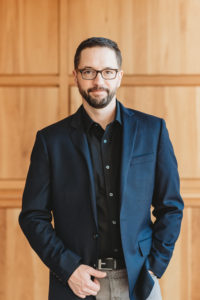
Shared Leadership in Large Collaborative Research Networks
Science is increasingly collaborative in our era of remote work and virtual connectivity. Conventional modes of leadership are often vertical, where tasks and responsibilities are allocated by a leader at the top. In shared leadership, individuals at multiple levels in an organizational hierarchy influence each other, share responsibility, and direct fellow team members. Here, I discuss how we use the shared leadership model in two large (>40 members) collaborative research projects: StreamCLIMES and the Dry Rivers Research Coordination Network. Both are highly collaborative, interdisciplinary, and seek to understand how drying impacts streams from ecological and hydrological perspectives. However, they differ in their organization and approach, and implement the shared leadership model differently. StreamCLIMES is a primary research project that generates new data, and members are funded directly from separate awards. The Dry Rivers RCN is a secondary research project that develops new conceptual frameworks and syntheses of existing data, and member salaries are largely unfunded from the single award. As a result of these differences, StreamCLIMES is more nested and hierarchical, where sub-teams have different responsibilities that contribute synergistically to the overall project. In contrast, the Dry Rivers RCN is less nested, leadership is distributed diffusely, and we practice “radical inclusivity” to engage the network. Yet, the shared leadership model has increased team productivity in both projects, particularly by creating space for new and diverse ideas to flourish, most of which were not anticipated a priori. Thus, I argue shared leadership is a successful model for large collaborative research networks.
Daniel C. Allen, PhD., is an Assistant Professor in the Department of Ecosystem Science and Management at Penn State. He is an ecologist who studies how organisms, communities, and ecosystems are responding to global change, including biodiversity loss, dams, land use change, stream drying, and climate change. He primarily studies stream macroinvertebrates, but has also used fish, algae, birds, riparian plants, and terrestrial arthropods to test theory describing how stressors and disturbances should impact ecological communities and the ecosystem processes they perform. He has served for the editorial boards of Functional Ecology and Freshwater Science, and he has been honored as a Hynes Awardee (Society for Freshwater Science). He received his BA from Macalester College in St. Paul, MN, and his PhD from the University of Oklahoma.
Lisette N. De Senerpont Domis
Netherlands Institute of Ecology

Team Science is Dream Science? Lessons Learned from Aquatic Networked Science
Historically, humans have settled near to aquatic ecosystems, due to their demand of water for drinking and agricultural purposes, resulting in complex human-water interactions. Close proximity to continuous human activities puts pressure on aquatic systems, resulting in dramatic loss of biodiversity and ecosystem functions, even more so compared to their terrestrial counterparts. Aquatic systems often serve as a sink for pollutants resulting from human activities, making them vulnerable to compound effects of a diverse suite of local stressors, including nutrient loads, pharmaceuticals and plastic debris. Climate change may alter the ecological effects of these local pressures by changing the fate of pollutants but also by altering the biological response of organisms to pressures. These complex environmental issues require a multifaceted transdisciplinary research, moving away from more traditional forms of science practice. Networked open science aims at democratizing science and capitalizes on the emergence of new technologies, such as the internet of things and online open tools, thus greatly accelerating scientific discovery. I will explore some of the barriers and opportunities for networked science through my experiences with the Global Ecological Lake Observatory Network (GLEON, a grass roots network of more than 800 members that conducts innovative science by sharing and interpreting high resolution sensor data to understand, predict and communicate the role and response of lakes in a changing global environment), the AQUACOSM-Plus project (promoting ground-breaking developments in mesocosm technology) and the DRYVER project (new strategies to map, study and manage drying rivers).
Dr. Lisette N. de Senerpont Domis is an aquatic ecologist at the Netherlands Institute of Ecology (NIOO-KNAW). She holds a PhD in Natural Sciences of Leiden University. She is interested in how different aspects of human-induced global changes, such as climate warming, eutrophication, and emerging pollutants affect species interactions in an ecosystem context. Stimulated by the urgency of the ecological crisis our planet is facing, she became interested in making ecological principles operational for aquatic ecosystem management and conservation. She initiated and is head of the successful Aquatic Knowledge centre Wageningen (AKWA), a translational science unit at the NIOO-KNAW. AKWA translates state-of-the art fundamental scientific knowledge to encompassing solutions for the complex problems water users face in the light of fast global and local environmental changes. A recurring theme in her work is the use of smart and innovative ecological monitoring techniques to address pressing societal challenges.
Thursday, May 19: Collaborations with Communities
Catherine Febria
University of Windsor, Ontario
Andrea Reid
University of British Columbia Centre for Indigenous Fisheries
Joint Talk: Moving Forward in a Good Way: Transforming Collaborations towards Ethical and Equitable Partnerships in Fisheries and Aquatic Sciences
Scientists, organizations, and governments alike are increasingly interested in opportunities to “bridge” Indigenous and Western knowledge towards better understanding and stewarding freshwater ecosystems. While this practice holds immense potential for enriching our understanding of the world, efforts occur in the complicated context of colonization and cultural differences.
Dr. Reid will share how Indigenous scholars are increasingly overwhelmed by requests to collaborate, present, and share knowledge. However, she explores how this might be done in “in a good way” – a phrase used to encompass practices that benefit Indigenous Nations while reinforcing Indigenous values. Drawing on rich narratives from Indigenous-led projects and partnerships, Dr. Reid will share key questions for the aquatic science community to consider, calling on transformative change in how Western science and institutions must fundamentally change and adapt at all levels.
In parallel, in thoughtful conversation as an Immigrant settler & Western science-trained scholar, Dr. Febria will remind us how the UN Decade of Ecosystem Restoration calls for an accelerated need to cooperate at local and global scales to heal our degraded planet, and that the best examples of restoration success have been Indigenous-led efforts. Through research situated in watersheds impacted by settler-dominated agricultural intensification and urbanization, Dr. Febria will describe how farm-focused and Indigenous-led partnerships have led to richer outcomes in addition to Western-science outcomes, all of which are crucial for freshwater restoration.
Sharing the stage together, we hope to demonstrate through varied and rich examples that engagement with communities within sciences, across our shared home known as Turtle Island/North America, and beyond, now is the time to move away from extractive models of research; instead, we must move forward with ethical and equitable approaches that will lead to beneficial outcomes for all.
Dr. Febria is a Pinay/Filipina immigrant settler to Turtle Island and a Tier 2 Canada Research Chair and Assistant Professor at the University of Windsor which sits in the Traditional Territory of the Three Fires Confederacy. The Healthy Headwaters Lab focuses on the ecology and restoration of waterways in human-impacted landscapes through a decolonial approach to science-based discovery and solutions. She is Associate Director of FishCAST a federal science graduate training program, Coordinating Editor for the journal Restoration Ecology, Alumni Fellow of IPBES and the Co-Chair of the International Science Advisory Panel for New Zealand’s Biological Heritage National Science Challenge. She received graduate degrees from the University of Toronto and Simon Fraser University and previously held a postdoctoral role at the University of Maryland and was the Director of the Canterbury Waterway Rehabilitation Experiment at the University of Canterbury in Aotearoa, New Zealand.
Dr. Andrea Reid is a citizen of the Nisga’a Nation and a new Assistant Professor with the University of British Columbia’s Institute for the Oceans and Fisheries. She is helping to launch and lead the Centre for Indigenous Fisheries, working to build a national and international hub for the study and protection of culturally significant fish and fisheries. Her research program adopts highly interdisciplinary and applied approaches to improving our understanding of the complex interrelationships between fish, people and place. Reid’s PhD in Biology (Governor General’s Gold Medal; Carleton University ’20) centered on multiple stressor effects on Pacific salmon, using tools and insights from Western and Indigenous sciences in tandem. Reid is a cofounder of Riparia, a Canadian charity that connects diverse young women with science on the water to grow the next generation of water protectors. She is also a National Geographic Explorer and a Fellow of The Explorers Club.
Friday, May 20
Sunshine Menezes
University of Rhode Island Metcalf Institute
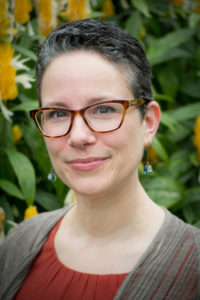
Inclusive Environmental Communication: The Urgency of a New Paradigm
A paradigm shift is underway in science communication. This shift is a response to the exclusionary and inequitable assumptions that have often formed the foundation for communication about STEM topics. Instead, the “inclusive science communication” movement centers the values of inclusion, equity, and intersectionality and recognizes the need for meaningful public participation to address wicked problems like climate change, pollution, and biodiversity loss. The movement also seeks to break down disciplinary and other silos that slow the pace of change and stifle the shared learning that could accelerate equitable responses to our shared environmental challenges. In keeping with the JASM 2022 theme of “Rapid Change and Collaborative Solutions,” Dr. Menezes will introduce this movement and share a framework that researchers and science communicators can use to redress the systemic problems of inequitable access to and engagement with STEM.
Sunshine Menezes, Ph.D. (she/her) is executive director of the University of Rhode Island’s Metcalf Institute and Clinical Associate Professor of Environmental Communication in the URI Department of Natural Resources Science. Her professional expertise spans oceanography, environmental and energy policy, inclusive science communication and engagement, and designing curricula for transdisciplinary education and professional development for journalists and scientists. Menezes co-founded the Inclusive SciComm Symposium, a national conference designed to build a community of science communication practitioners and researchers who center equity in their work. She has served as a resource partner for the Civic Science Fellowship and as a member of the national Broadening Participation Task Force and several other national projects designed to craft new approaches to graduate STEM education. Menezes has a B.S. in zoology from Michigan State University and a Ph.D. in oceanography from the URI Graduate School of Oceanography.

